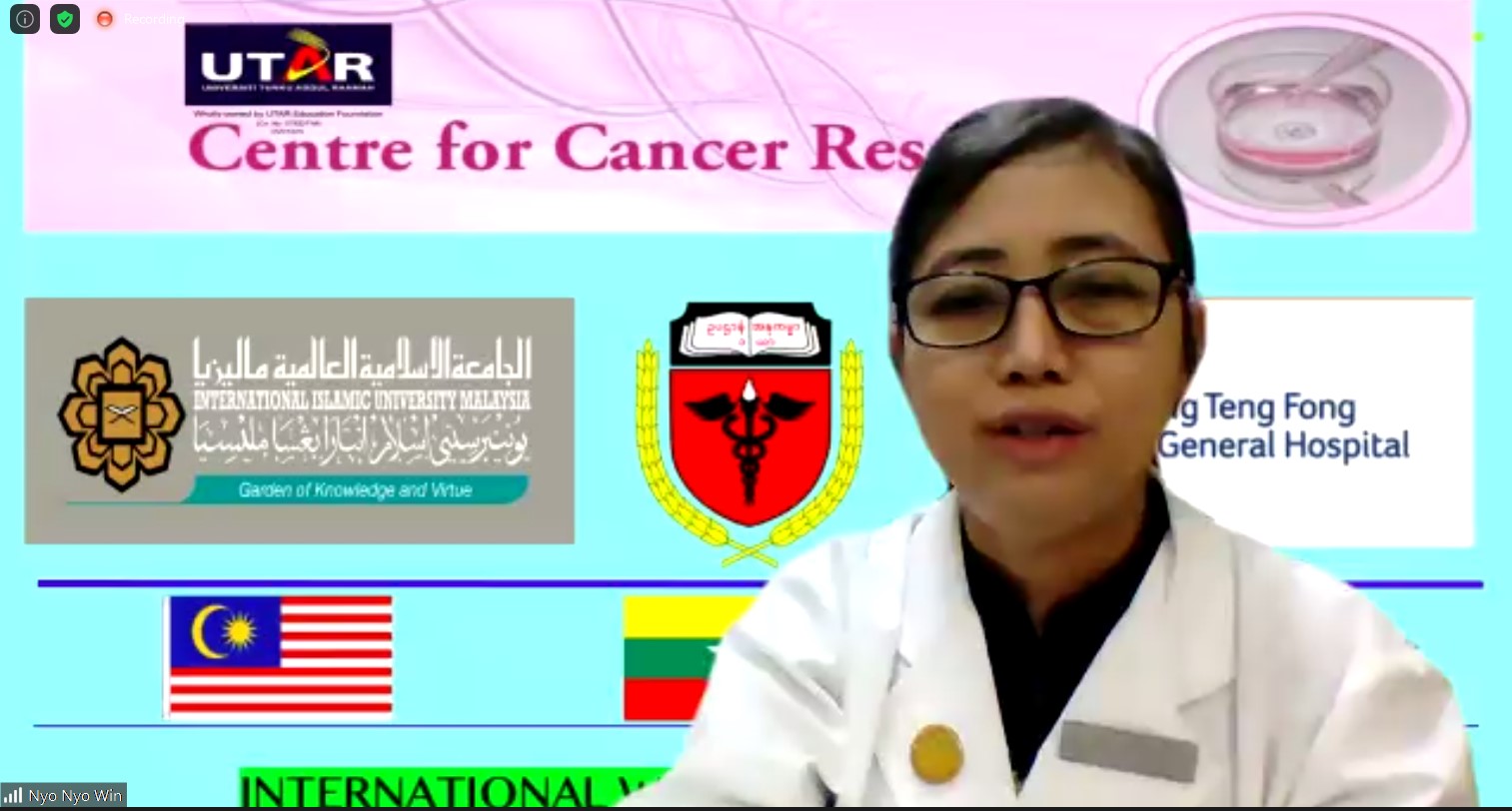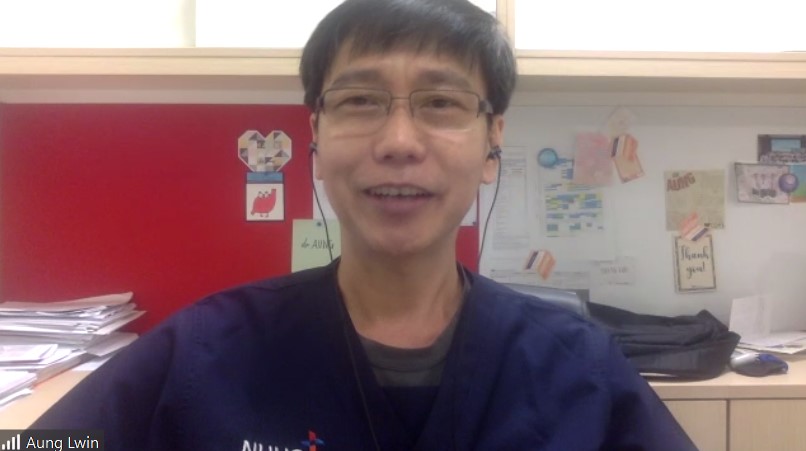
Understanding the symptoms and treatment for “Gastrointestinal Cancers”
UTAR Centre for Cancer Research (CCR) parked under the Faculty of Medicine and Health Sciences (FMHS) organised an international webinar titled “Gastrointestinal Malignancies” on 10 December 2020 via Zoom.
Invited to deliver talks during the webinar were Prof Dr. Nasser Muhammad Amjad, Department of Surgery, International Islamic University Malaysia Medical Centre, Kuantan, Prof Dr. Nyo Nyo Win, Head of Department of Paediatric Surgery, University of Medicine-I Yangon, Myanmar, Dr Aung Lwin, Consultant Surgeon, Ng Teng Fong General Hospital, Singapore, and CCR Chairperson Prof Ts Dr. Lim Yang Mooi. The webinar was moderated by AP Dr. Yan Naing Soe and Dr. Fann Rui Jeat.
The objective of the webinar was to understand the recent updates of gastrointestinal cancers. Furthermore, the webinar also aimed to recognise the most common types of cancer symptoms, the latest treatment principles to cure it and to highlight the role of an innovative cancer research.
The first speaker, Prof Dr. Nasser delivered his topic titled “Current Management of Oesophageal Carcinoma”. In his talk, he said, “The squamous cell cancer is the predominant form while adenocarcinoma had increased greatly in the past 40 years.” He also added that the distribution of squamous cell cancer location in worldwide data was recorded mostly for upper thoracic (10%), middle thoracic (58%) and lower thoracic (32%), and the adenocarcinoma location was overwhelmingly in the lower thoracic oesophagus (96%). Once the diagnosis for oesophageal cancer is confirmed, Prof Dr Nasser recommended the patient to take other additional tests like Bronchoscopy, Endoscopic ultrasound (EUS), Computerized tomography (CT) and Positron emission tomography (PET).
The second talk continued with Prof Dr. Nyo with her topic titled “Intestinal Obstruction in Children”. In her talk, Prof Dr. Nyo clarified that 1 in 1,500 babies develops intestinal obstruction in the newborn period. Neonatal intestinal obstruction is caused by an anatomical abnormality that leads to bowel movement failure. She also listed the common causes of neonatal period such as duodenal atresia, stenosis, annular pancreas, malrotation with volvulus neonatorum, meconium ileus, meconium plug syndrome and many more. She also added an operation to remove the blockage and repair the duodenum are required to treat this symptom.
Prof Dr. Lim, on the other hand, talked about anti-cancer properties of Maslinic acid. She presented the worldwide cancer mortality map chart and described the common causes of cancer death and cancer mortality by region. “Cancer is a disease of cell biology. The cell receives signal to function and each cell functions precisely based on the specific programme instructed by the DNA. In a cancer cell, the accumulation of defective DNAs leads to uncontrollable and inappropriate proliferation,” she added.
The final topic “Updates on Management of Gastric Cancer” was delivered by Dr Aung Lwin. Dr Aung mentioned, “The gastric cancer is the sixth most common cancer. It is highly caused by strong smoking habits and alcohol consumption. Besides, the recommended treatments for gastric cancer are endoscopic treatment, surgical resection, chemotherapy, radiotherapy and immunotherapy.”
The two-hour webinar then concluded with an insightful Q&A session.


The webinar moderator (from left) Dr Yan and Dr Fann

Prof Nasseer explaining about the squamous cell cancer

Dr Nyo clarifying the abdominal obstruction in children

Prof Lim delivering her talk about the anti-cancer properties of maslinic acid

Dr Aung Lwin clarifying the gastric cancer causes and treatment
![]()
![]()
© 2021 UNIVERSITI TUNKU ABDUL RAHMAN DU012(A).
Wholly owned by UTAR Education Foundation Co. No. 578227-M LEGAL STATEMENT TERM OF USAGE PRIVACY NOTICE